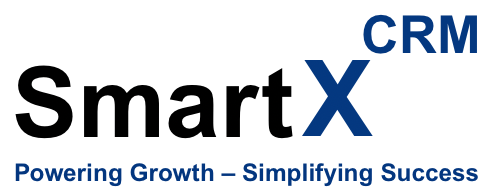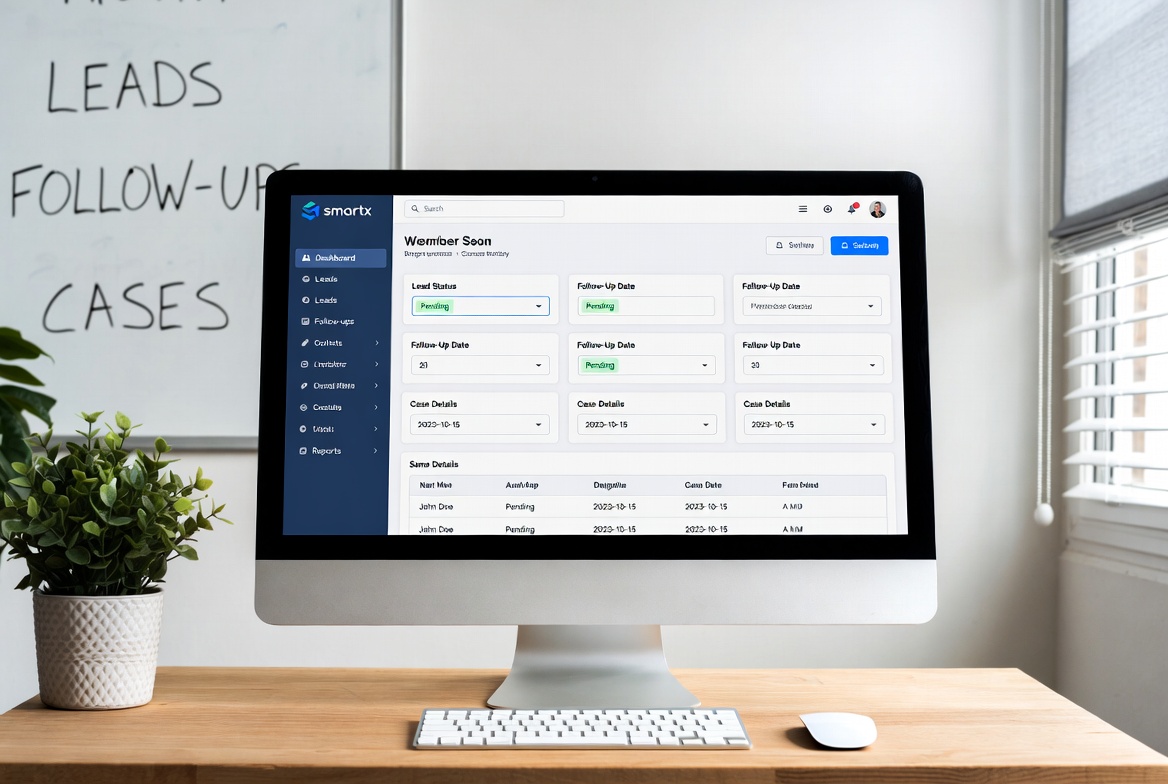Running a small business in today’s competitive landscape requires more than just great products or services—it demands exceptional customer relationship management. CRM software delivers an impressive average ROI of $8.71 for every $1 spent, making it one of the most valuable investments small businesses can make. This comprehensive guide will explore how CRM software for small businesses can revolutionize your customer relationships, streamline operations, and drive sustainable growth.
What is CRM Software for Small Businesses?
CRM (Customer Relationship Management) software for small businesses is a centralized platform that helps companies manage all customer interactions, streamline sales processes, and build lasting relationships with clients. A CRM for small businesses helps organize customer data, track leads, automate workflows, and enhance team collaboration while providing insights into sales trends and optimizing customer interactions.
Unlike enterprise-level CRM systems that can be complex and expensive, small business CRM software is designed to be user-friendly, affordable, and scalable. SmartX CRM, for instance, develops CRM solutions for all industries, ensuring that every small business—whether in healthcare, real estate, education, or manufacturing—can find the perfect fit for their unique needs.
Key Components of Small Business CRM Software
Modern CRM software for small businesses typically includes:
- Contact Management: Centralized customer database with detailed profiles
- Lead Management: Tools to capture, qualify, and nurture potential customers
- Sales Pipeline Management: Visual representation of deals in progress
- Task and Activity Management: Automated reminders and follow-up scheduling
- Email Marketing Integration: Targeted campaigns and automated sequences
- Reporting and Analytics: Performance insights and ROI tracking
- Mobile Accessibility: Management capabilities on-the-go
- Integration Capabilities: Seamless connection with other business tools
Why Small Businesses Need CRM Software in 2025
The business landscape has evolved dramatically, and small businesses face unprecedented challenges and opportunities. By 2025, over 70% of CRM platforms will integrate AI, unlocking unprecedented productivity and growth. Here’s why CRM software has become essential for small businesses:
1. Enhanced Customer Experience and Retention
Companies that effectively use CRM tools to engage with customers experience a 27% increase in customer retention rates. In an era where customer acquisition costs continue to rise, retaining existing customers becomes crucial for sustainable growth.
Small business CRM software enables you to:
- Track customer preferences and purchase history
- Provide personalized service based on past interactions
- Respond quickly to customer inquiries and issues
- Anticipate customer needs proactively
2. Improved Sales Performance and Revenue Growth
CRM applications can help increase sales by up to 29%, sales productivity by up to 34%, and sales forecast accuracy by 42%. These statistics demonstrate the tangible impact CRM software has on small business performance.
With effective CRM implementation, small businesses can:
- Shorten sales cycles through better lead qualification
- Increase conversion rates with targeted follow-ups
- Identify upselling and cross-selling opportunities
- Make data-driven decisions about sales strategies
3. Streamlined Operations and Automation
Modern small business CRM software automates repetitive tasks, freeing up valuable time for strategic activities. CRM trends shaping the industry in 2025 prioritize smarter automation, enhanced data security, omnichannel communication, and more accessible solutions for businesses of all sizes.
Automation capabilities include:
- Automatic lead capture from websites and social media
- Email sequences triggered by customer actions
- Task assignments based on predefined criteria
- Follow-up reminders for sales activities
4. Better Data Management and Accessibility
74% of users said their CRM system gave them improved access to customer data. For small businesses, having centralized, accessible customer information is crucial for providing consistent service across all touchpoints.
Essential Features of CRM Software for Small Businesses
When selecting CRM software for your small business, consider these critical features that can make or break your customer relationship management success:
1. Lead Management and Generation
Effective lead management is the foundation of successful sales. Your CRM software should offer:
- Lead Capture Forms: Customizable forms for websites and landing pages
- Lead Scoring: Automated ranking based on engagement and fit
- Lead Assignment: Intelligent distribution to appropriate team members
- Lead Nurturing: Automated email sequences and content delivery
SmartX CRM provides comprehensive lead management solutions that help small businesses capture, qualify, and convert leads efficiently across all industries.
2. Contact and Customer Management
Comprehensive contact management ensures no customer detail is overlooked:
- 360-Degree Customer Profiles: Complete interaction history and preferences
- Contact Segmentation: Group customers based on various criteria
- Communication Tracking: Log of all emails, calls, and meetings
- Custom Fields: Industry-specific data points and tags
3. Sales Pipeline Management
Visual sales pipeline management helps track deals and forecast revenue:
- Drag-and-Drop Interface: Easy deal progression tracking
- Customizable Sales Stages: Align with your specific sales process
- Deal Forecasting: Predictive analytics for revenue planning
- Win/Loss Analysis: Insights into successful and failed deals
4. Task and Activity Management
Stay organized and never miss important follow-ups:
- Automated Task Creation: Based on customer actions and timeline
- Calendar Integration: Sync with existing scheduling tools
- Reminder Systems: Email and mobile notifications
- Activity Reporting: Track team productivity and performance
Learn more about how SmartX CRM helps businesses set tasks and reminders to automate your day.
5. Email Marketing Integration
Combine CRM data with marketing efforts for better results:
- Email Campaign Management: Create and send targeted campaigns
- Template Library: Pre-designed templates for various industries
- A/B Testing: Optimize subject lines and content
- Performance Tracking: Open rates, click-through rates, and conversions
Discover how data-driven email marketing can increase leads with smarter subject lines.
6. Reporting and Analytics
Make informed decisions with comprehensive reporting:
- Sales Performance Reports: Track individual and team metrics
- Customer Analytics: Understand customer behavior patterns
- ROI Tracking: Measure marketing and sales campaign effectiveness
- Custom Dashboards: Personalized views of key metrics
7. Mobile Accessibility
Manage your business on-the-go with mobile-friendly features:
- Mobile Apps: Native applications for iOS and Android
- Responsive Design: Web-based access from any device
- Offline Capabilities: Work without internet connection
- Real-Time Sync: Updates across all devices instantly
Industry-Specific CRM Solutions for Small Businesses
Different industries have unique requirements, and the best CRM software for small businesses adapts to these specific needs. SmartX CRM specializes in developing CRM solutions for all industries:
Healthcare and Wellness CRM
Healthcare practitioners need specialized features for patient management:
- HIPAA compliance for patient data protection
- Appointment scheduling and reminders
- Treatment history tracking
- Insurance claim management
Explore SmartX CRM’s healthcare and wellness lead generation solutions.
Real Estate CRM Software
Real estate professionals require tools for property and client management:
- Property listing management
- Transaction tracking
- Commission calculations
- Market analysis tools
Learn about the best real estate CRM for unstoppable lead generation and growth.
Insurance CRM Solutions
Insurance agents need specialized features for policy management:
- Policy renewal tracking
- Claims management
- Commission tracking
- Compliance reporting
Discover InsureCRM – the best CRM software for insurance agents.
Education and Consulting CRM
Educational institutions and consultants benefit from:
- Student/client progress tracking
- Course/service management
- Billing and payment processing
- Performance analytics
Check out the best CRM for education consultancy.
Service-Based Business CRM
Home services, cleaning, and local service businesses need:
- Scheduling and dispatch management
- Service history tracking
- Recurring service management
- Mobile workforce tools
Learn about local service business lead generation CRM solutions.
How to Choose the Right CRM Software for Your Small Business
Selecting the perfect CRM software for your small business requires careful consideration of several factors:
1. Assess Your Business Needs
Before evaluating CRM options, identify your specific requirements:
- Team Size: How many users need access?
- Industry Requirements: Do you need industry-specific features?
- Integration Needs: What tools must the CRM connect with?
- Budget Constraints: What’s your monthly/annual budget?
- Growth Plans: How will your needs change as you scale?
2. Evaluate Ease of Use
91% of companies with more than 11 employees use a CRM system, but adoption fails when the system is too complex. Look for:
- Intuitive interface design
- Minimal learning curve
- Comprehensive training resources
- Strong customer support
- User-friendly mobile apps
3. Consider Scalability and Flexibility
Your CRM should grow with your business:
- Flexible pricing plans
- Ability to add users easily
- Customizable features and fields
- Integration possibilities
- Advanced features available as you grow
4. Analyze Total Cost of Ownership
Beyond monthly fees, consider:
- Setup and implementation costs
- Training and onboarding expenses
- Customization fees
- Integration costs
- Ongoing support and maintenance
5. Review Integration Capabilities
Your CRM should work seamlessly with existing tools:
- Email marketing platforms
- Accounting software
- E-commerce platforms
- Social media tools
- Communication systems
Implementation Best Practices for Small Business CRM
Successful CRM implementation requires strategic planning and execution. When properly implemented, CRM ROI can exceed 245%. Follow these best practices:
1. Define Clear Objectives
Establish specific, measurable goals for your CRM implementation:
- Increase lead conversion by X%
- Reduce sales cycle time by X days
- Improve customer retention by X%
- Increase average deal size by $X
2. Clean and Organize Your Data
Before migrating to your new CRM:
- Remove duplicate contacts
- Standardize data formats
- Complete missing information
- Categorize contacts properly
3. Customize for Your Workflow
Adapt the CRM to match your business processes:
- Configure sales stages to reflect your sales process
- Set up custom fields for industry-specific data
- Create automated workflows for routine tasks
- Design dashboards for different user roles
4. Train Your Team Thoroughly
Ensure all team members understand how to use the system effectively:
- Provide comprehensive initial training
- Offer ongoing education opportunities
- Create user guides and documentation
- Designate CRM champions within your team
5. Start Small and Scale Gradually
Begin with core features and expand over time:
- Implement basic contact and lead management first
- Add advanced features progressively
- Monitor adoption and usage regularly
- Adjust based on user feedback and needs
Advanced CRM Features for Small Business Growth
As your small business grows, advanced CRM features become increasingly valuable:
1. Artificial Intelligence and Automation
In 2025, enterprises seek targeted AI use cases that deliver measurable value in customer satisfaction, automated business processes, and enhanced sales revenue. AI-powered features include:
- Predictive Lead Scoring: AI analyzes patterns to identify high-value prospects
- Intelligent Recommendations: Suggest next best actions for sales reps
- Automated Data Entry: Reduce manual input through smart data capture
- Chatbot Integration: Handle routine inquiries automatically
2. Advanced Analytics and Reporting
Sophisticated reporting capabilities provide deeper insights:
- Cohort Analysis: Track customer behavior over time
- Revenue Attribution: Understand which activities drive revenue
- Churn Prediction: Identify at-risk customers proactively
- Performance Benchmarking: Compare against industry standards
3. Social Media Integration
Manage social interactions within your CRM:
- Social Listening: Monitor brand mentions and sentiment
- Social Lead Generation: Capture leads from social platforms
- Social Customer Service: Respond to inquiries on social channels
- Social Analytics: Measure social media ROI
SmartX CRM offers powerful Facebook lead generation integration that transforms social media activity into business growth.
4. Marketing Automation Integration
Combine CRM data with marketing automation:
- Behavior-Based Triggers: Send targeted messages based on actions
- Lead Nurturing Campaigns: Automated email sequences
- Dynamic Content: Personalized messaging based on CRM data
- Campaign ROI Tracking: Measure marketing effectiveness
Common CRM Implementation Challenges and Solutions
While CRM software offers tremendous benefits, small businesses often face implementation challenges. Here’s how to overcome them:
Challenge 1: User Adoption Resistance
Solution: Focus on demonstrating immediate value and providing comprehensive training. Show team members how the CRM will make their jobs easier, not harder.
Challenge 2: Data Quality Issues
Solution: Establish data quality standards and regular cleanup procedures. Use automated validation rules to maintain data integrity.
Challenge 3: Integration Difficulties
Solution: Choose a CRM with robust integration capabilities and consider working with implementation specialists for complex integrations.
Challenge 4: Customization Complexity
Solution: Start with standard configurations and gradually add customizations based on actual usage patterns and feedback.
Challenge 5: Cost Management
Solution: Begin with essential features and expand gradually. Many CRM providers offer scalable pricing plans that grow with your business.
Measuring CRM Success: Key Performance Indicators
Track these metrics to measure your CRM software’s impact:
Sales Metrics
- Conversion Rates: Percentage of leads that become customers
- Sales Cycle Length: Average time from lead to close
- Average Deal Size: Revenue per closed deal
- Sales Productivity: Deals closed per sales rep
Customer Metrics
- Customer Lifetime Value (CLV): Total revenue from a customer relationship
- Customer Retention Rate: Percentage of customers retained over time
- Customer Satisfaction Score: Feedback ratings from customers
- Net Promoter Score (NPS): Customer loyalty and referral likelihood
Operational Metrics
- Lead Response Time: How quickly leads are contacted
- Activity Volume: Number of calls, emails, and meetings
- Data Quality Score: Completeness and accuracy of customer data
- User Adoption Rate: Percentage of team members actively using CRM
Future Trends in Small Business CRM Software
The future of CRM is poised to be even brighter in 2025 than possibly any years in the past with emerging add-ons and exciting trends. Stay ahead by understanding these emerging trends:
1. AI-Powered Personalization
Advanced AI will enable hyper-personalized customer experiences based on individual preferences, behavior patterns, and predictive analytics.
2. Voice and Conversational Interfaces
Voice-activated CRM interactions and conversational AI will make system navigation more intuitive and efficient.
3. Augmented Reality Integration
AR features will enable virtual product demonstrations, remote assistance, and immersive customer experiences.
4. Blockchain for Data Security
Enhanced security measures will protect customer data while ensuring transparency and compliance with privacy regulations.
5. Internet of Things (IoT) Integration
Connected devices will provide additional customer data points and trigger automated CRM actions based on real-world events.
Conclusion: Transform Your Small Business with CRM Software
CRM software for small businesses is no longer a luxury—it’s a necessity for competitive survival and sustainable growth. Businesses that use CRM saw an increase of 41% in sales revenue and a 32% reduction in marketing costs, demonstrating the significant impact proper CRM implementation can have on your bottom line.
SmartX CRM understands that every small business is unique, which is why we develop CRM solutions for all industries. Whether you’re in healthcare, real estate, education, financial services, or any other industry, our comprehensive CRM platform adapts to your specific needs.
The key to CRM success lies in choosing the right software, implementing it strategically, and continuously optimizing based on results. With the right CRM software, your small business can:
- Increase Revenue: Through improved sales processes and customer retention
- Reduce Costs: By automating manual tasks and improving efficiency
- Enhance Customer Experience: With personalized, timely interactions
- Scale Effectively: Using data-driven insights to guide growth strategies
Don’t let your competitors gain the advantage. Invest in CRM software for your small business today and start building stronger, more profitable customer relationships that will fuel your success for years to come.
Ready to transform your small business with powerful CRM software? Explore how SmartX CRM can help you manage and convert leads faster and discover why we’re the smart choice for modern businesses.





Leave a comment: